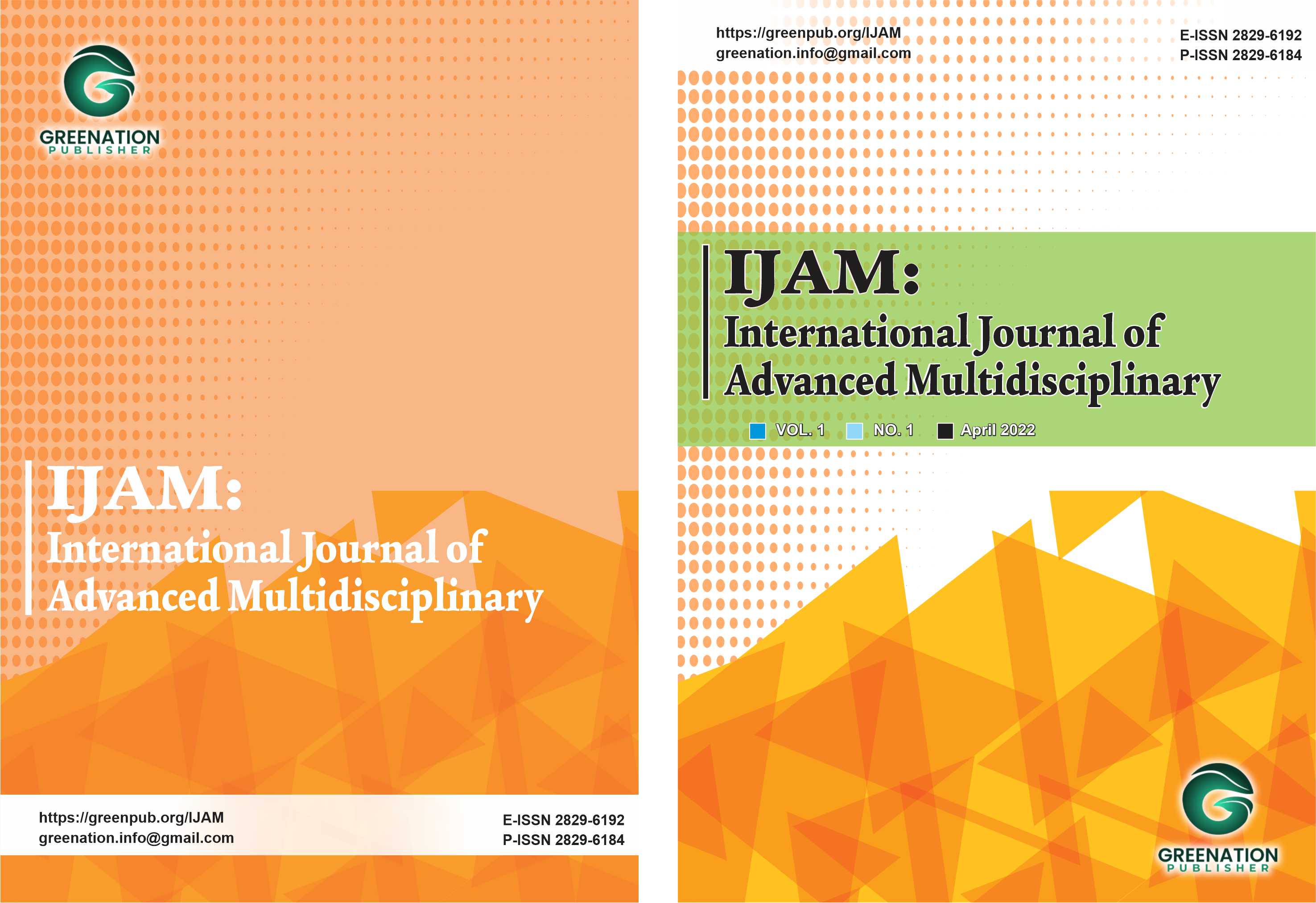Catalyzing Change: Unleashing the Power of Artificial Intelligence in Indonesian Business
DOI:
https://doi.org/10.38035/ijam.v2i4.461Keywords:
Artificial Intelligence, Indonesian Business, Operational Efficiency, Algorithmic Bias, Business ParadigmAbstract
Artificial Intelligence (AI) has become a transformative force in the modern business world. This research analyzes the impact of AI adoption in businesses, focusing on the Indonesian business context. We combine literature analysis, cross-sector case studies, and interviews with business stakeholders. The research findings indicate that AI has shifted the business paradigm in Indonesia by enhancing operational efficiency, altering traditional business models, and supporting better decision-making. Challenges related to algorithmic bias and AI ethics are also identified. The implications of this research include the need for thoughtful management of AI adoption, collaboration with regulators, and increased education and awareness regarding social impact and ethics. Further research can deepen the understanding of AI's impact in diverse business contexts in Indonesia. This research provides a solid foundation for understanding AI's role in modern business, bridging the global and local dimensions to detail the impacts, challenges, and opportunities faced by organizations adopting this technology.
References
Anderson, T. (2018). The Impact of Artificial Intelligence on Business and Economics: The Case of Finance. Journal of Economics, Finance and Administrative Science, 23(45), 18-23.
Brynjolfsson, E., & McAfee, A. (2017). The Business of Artificial Intelligence. Harvard Business Review, 95(1), 60-71.
Chui, M., Manyika, J., & Miremadi, M. (2016). Where Machines Could Replace Humans—and Where They Can’t (Yet). McKinsey Quarterly, 2(11), 1-13.
Davenport, T. H., Guha, A., & Grewal, D. (2018). How Artificial Intelligence Is Changing the Way Companies Compete. MIT Sloan Management Review, 59(4), 1-22.
Janssen, M., Charalabidis, Y., & Zuiderwijk, A. (2012). Benefits, Adoption Barriers and Myths of Open Data and Open Government. Information Systems Management, 29(4), 258-268.
Manyika, J., Chui, M., & Brown, B. (2011). Big Data: The Next Frontier for Innovation, Competition, and Productivity. McKinsey Global Institute, 20(6), 1-11.
Simonite, T. (2018). Microsoft Is Using AI to Cut the Cloud’s Electric Bill. MIT Technology Review. Retrieved from https://www.technologyreview.com/s/611808/microsoft-is-using-ai-to-cut-the-clouds-electric-bill/
Smith, M., & Anderson, W. (2017). Teaching and Learning in the Age of Artificial Intelligence. In Proceedings of the Seventh International Learning Analytics & Knowledge Conference (pp. 51-55). ACM.
Sutskever, I., Vinyals, O., & Le, Q. V. (2014). Sequence to Sequence Learning with Neural Networks. In Advances in Neural Information Processing Systems (pp. 3104-3112).
Taleb, N. N. (2012). Antifragile: Things That Gain from Disorder. Random House.
Tegmark, M. (2017). Life 3.0: Being Human in the Age of Artificial Intelligence. Vintage.
Wang, D., Zhang, W., & Zhang, L. (2018). Understanding Customer Purchase Behavior in the Era of Online Shopping: A Review and Agenda for Future Research. Journal of Business Research, 117, 589-597.
West, D. M. (2018). How Artificial Intelligence Is Transforming the World. Brookings Institution.
Zeng, L., Wu, Z., & Zhang, Y. (2016). Consumer Acceptance of Information Technologies: Review, Synthesis, and Future Research Directions. Expert Systems with Applications, 55, 171-177.
Zheng, Z., Li, D., Chen, M., Wu, F., & Li, K. (2019). Smart Tourism Destination Recommendation Based on User-Generated Content. IEEE Transactions on Industrial Informatics, 15(5), 3130-3137.
Zikopoulos, P., Eaton, C., DeRoos, D., Deutsch, T., & Lapis, G. (2012). Understanding Big Data: Analytics for Enterprise Class Hadoop and Streaming Data. McGraw-Hill Osborne Media.
Arbib, M. A., & Bonaiuto, J. (2018). From Experiments to Robots: The Importance of Embodied, Enactive Cognition. Frontiers in Neurorobotics, 12, 29.
Cai, Z., Zhuang, C., & Ma, X. (2018). A Novel Hybrid Model for Short-Term Traffic Flow Prediction Based on Data Preprocessing and LS-SVM. Complexity, 2018, 1-13.
Chui, M., Manyika, J., & Mehdi, M. (2016). Where Machines Could Replace Humans—and Where They Can't (Yet). McKinsey Quarterly, 2, 1-14.
Creswell, J. W. (2009). Research Design: Qualitative, Quantitative, and Mixed Methods Approaches. Sage publications.
Dong, Y., Cao, S., Chen, C., Chen, Y., & Tian, X. (2018). Identification of influential spreaders in complex networks with local information. Physica A: Statistical Mechanics and its Applications, 508, 562-570.
Eccles, J. S., & Roeser, R. W. (2011). Schools, academic motivation, and stage-environment fit. In Handbook of Adolescent Psychology, 2, 404-434.
Gandomi, A., & Haider, M. (2015). Beyond the hype: Big data concepts, methods, and analytics. International Journal of Information Management, 35(2), 137-144.
James, G., Witten, D., Hastie, T., & Tibshirani, R. (2013). An Introduction to Statistical Learning (Vol. 112). New York: Springer.
Kitchin, R. (2014). Big Data, new epistemologies and paradigm shifts. Big Data & Society, 1(1), 2053951714528481.
Kristensson, P., Matthing, J., & Johansson, N. (2008). Key strategies for the successful involvement of customers in the co-creation of new technology-based services. International Journal of Service Industry Management, 19(4), 474-491.
McAfee, A., & Brynjolfsson, E. (2017). Machine, platform, crowd: Harnessing our digital future. W.W. Norton & Company.
Rajagopal, P., Peña, I., & Nijholt, A. (2017). Virtual Reality and Augmented Reality: Myths and Realities. In Handbook of Augmented Reality (pp. 3-47). Springer.
Sivarajah, U., Kamal, M. M., Irani, Z., & Weerakkody, V. (2017). Critical analysis of Big Data challenges and analytical methods. Journal of Business Research, 70, 263-286.
Wang, D., & Zhang, L. (2012). Preface—E-Commerce and Web Technologies. In E-Commerce and Web Technologies (pp. V-VI). Springer.
Downloads
Published
How to Cite
Issue
Section
License
Copyright (c) 2024 Robertus Suraji, Istianingsih, Hapzi Ali

This work is licensed under a Creative Commons Attribution 4.0 International License.
Authors who publish their manuscripts in this journal agree to the following conditions:
- The copyright on each article belongs to the author(s).
- The author acknowledges that the International Journal of Advanced Multidisciplinary (IJAM) has the right to be the first to publish with a Creative Commons Attribution 4.0 International license (Attribution 4.0 International (CC BY 4.0).
- Authors can submit articles separately, arrange for the non-exclusive distribution of manuscripts that have been published in this journal into other versions (e.g., sent to the author's institutional repository, publication into books, etc.), by acknowledging that the manuscript has been published for the first time in the International Journal of Advanced Multidisciplinary (IJAM).






















